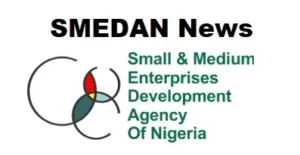THE Central Bank of Nigeria, CBN, yesterday, said it has paid N81 billion as rebate to eligible non-oil exporters.
Disclosing this at the second edition of the Race-To-$200 billion (RT200) Bi-annual Non-oil Export Summit, the CBN governor, Godwin Emefiele, also said that in 2022, a total of $4.98 billion has so far been repatriated into the country by non-oil exporters, about 56 percent up from $3.19 billion repatriated in 2021.

He further said that out of the $4.98 billion, only $1.96 billion qualified for the rebate program, and only $1.55 billion was sold at the Investors and Exporters (I&E) window or for own use.
Emefiele stated: “The CBN has also paid out about N81 billion in rebates to hard working Nigeria exporters. This is a testament to the resolve of the CBN to ensure quick acceleration of the export value chain in the country.
According to CBN’s rules, only finished goods exports are eligible for the rebate.
Emefiele noted that the bank in collaboration with the Bankers Committee has recorded some achievements in automation and digitization under the RT200 scheme.
He added: “We are working with the Quarantine Service to integrate their permits and certificates into the system and very soon the Nigerian Ports Authority, NPA, electronic Call Up System will also be integrated.”
Meanwhile, in a panel session on the topic “exploring the non-oil sector as the new frontier for foreign exchange inflows’’, the panelists identified low quality raw crops as a challenge faced by exporters in the RT200 program.

On his part, the Director General, Small and Medium Enterprises Development Agency of Nigeria, SMEDAN, Mr.Olawale Fasanya, said that to increase the value of raw commodities for exports, there is the need to sensitize the people in that line of business on what they should do.
He said: “The export value chain that is from the farm, the raw material; if there is anything to be done, it has to start from the farmers. Make sure that we create the enabling environment to buy quality raw material and of course to provide quality raw materials we will also make sure that we create a very enabling environment.’’






